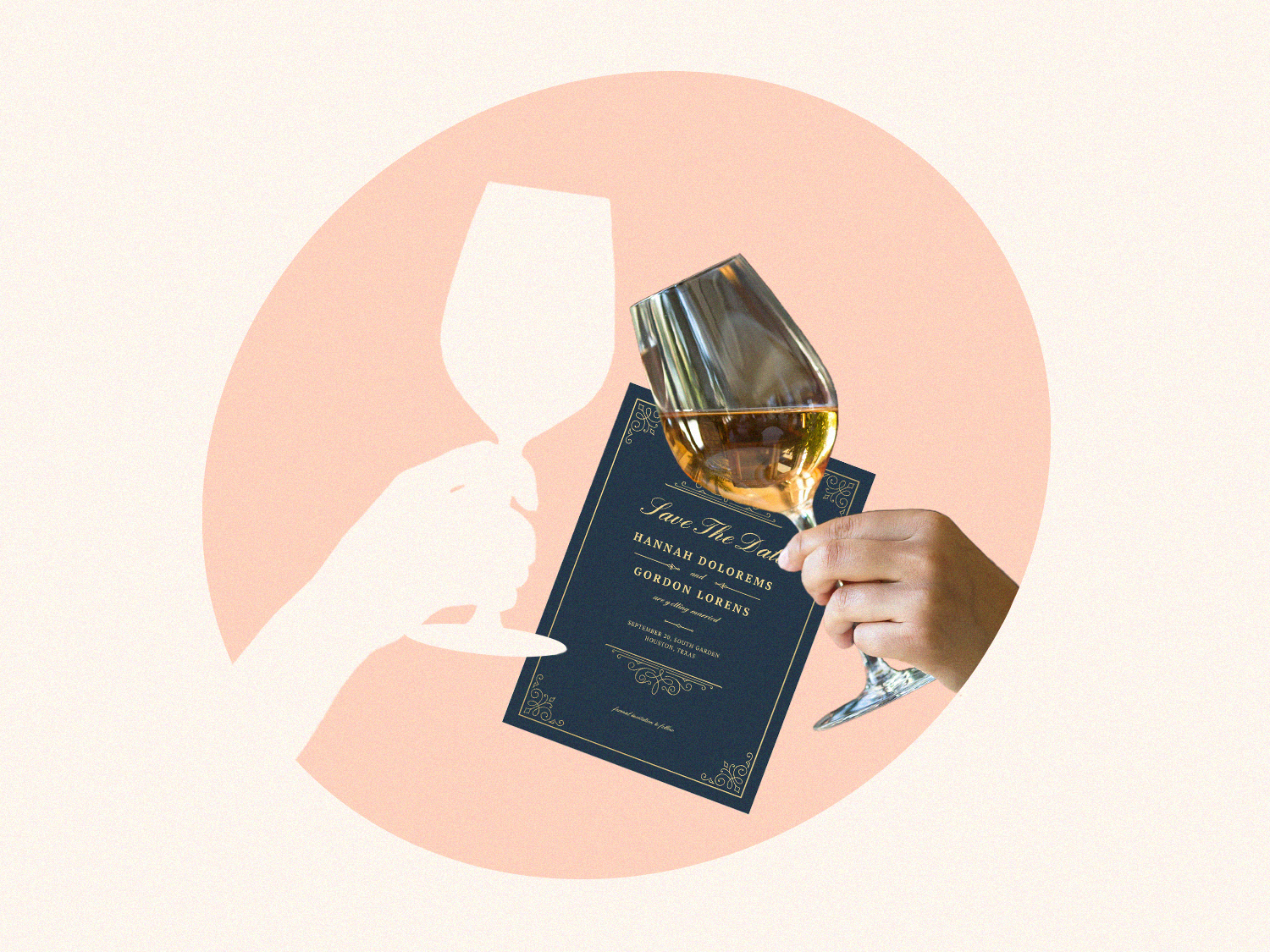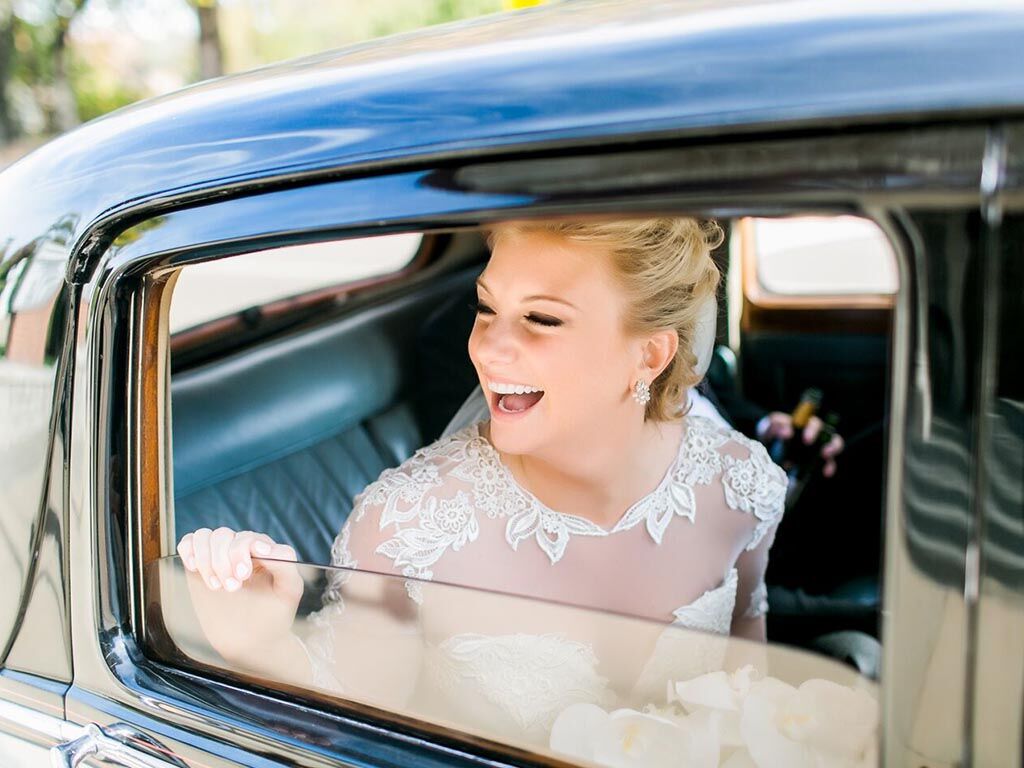5 Wedding Scams Every Couple Should Watch Out For
You may have heard it's the year of the grifter—and the wedding industry certainly isn't immune. Unfortunately, there are tons of wedding scam artists out there potentially making it their mission to ruin your wedding day, and swiping your money in the process if you're not careful.
Below, we've outlined the top wedding scams to watch out for—and how to avoid them—with the help of credit risk company Experian. (Spoiler alert: Scrutinize every document, vet every pro and generally proceed planning with caution.)
1. Buying a Dress From a Fraudulent Website
News flash: The internet is full of scams (that make wedding dress shopping online especially tricky), which is why we always recommend going to a salon IRL to find your gown. But in the case you're set on shopping online, it's fairly easy to spot a seller that shouldn't be trusted.
Look at prices—any wedding dress under $200 should immediately trigger skepticism. What might seem like a good deal upfront will probably leave you with a damaged or inferior gown than what was promised online (or worse—no gown at all). It's also important to note that tons of fraudulent sites are based in China, so be skeptical of that as well. And always be wary if you can't spot a "terms and conditions" in the sales deal or agreement—that means you'll have little to no leverage in getting a refund, especially if the seller's located outside of the US.
Luckily, there are tons of ways to vet a site to make sure it's legit. You can do some research on sites like SiteJabber.com and read reviews in various wedding forums—if it seems like dresses aren't living up to what was promised (or not arriving at all), you should definitely take your business elsewhere.
Make sure the site has a working customer service phone number or email address (ideally, both) and check out the fashion designer of your wedding dress to make sure it's a legitimate brand. A telltale sign a site is fake? If the images are weirdly cropped or lack image copyright language.
The most important thing you can do is never, ever pay in full before you get your dress. It's common to put down a deposit on a wedding dress, but please don't pay 100 percent upfront. You'll have no leverage when or if something goes wrong.
2. Falling Victim to a Bankrupt Dress Shop
It's sad for everyone when a dress shop goes out of business, but it can be absolutely devastating for the brides who lose their wedding dress, time and money ahead of their wedding days.
Even large retailers go under (like Alfred Angelo in 2017, for example) due to bankruptcy—and when shops close, they tend to close abruptly, leaving brides and bridesmaids alike suddenly without the gowns they already paid for.
It's mostly out of your control, and there's no way to be absolutely certain you're in the clear—or single-handedly prevent a shop from shutting its doors—but the best thing you can do is periodically check in and keep in touch with your dress shop or retailer, even if you have several months between your order and expected delivery date.



3. Getting Ripped Off by a Gem Seller
Picking the perfect engagement or wedding ring will take some serious research and know-how. Unfortunately, lots of ring shoppers get duped into buying a phony diamond, or a ring that isn't as valuable as advertised. Major price markups and sketchy diamonds are all too common in the jewelry biz, and if a deal seems too good to be true, it probably is.
That's why you (or your partner) should bring a professional ring appraiser with you to evaluate the quality of your ring or gem. If that's not possible, simply ask the dealer if any non-certified diamonds are on display (which means they're not quality-certified by the Gemological Institute of America). If they are, avoid them or ask for a steep discount.
For background, the GIA is deemed by industry experts to be the top gemstone rating agency in the world. Having a GIA-approved certificate for a ring means it underwent rigorous inspection by professional gemologists. In other words, it's the real deal.
Lastly, if you're buying a ring online, check all of the customer reviews you can to see if consumers are getting less than what was advertised.
4. Hiring an Unreliable Wedding Planner
A less-than-stellar wedding planner can easily ruin your wedding day (and your bank account) by not following through on promises or providing low-quality services. Of course, you should always make sure your wedding planner (along with every other vendor) is given a solid rating by the Better Business Bureau.
You can also read reviews, information and tips about every kind of vendor on our own site to make sure they have tons of other happy customers.
If they can't provide you with any references, you should probably keep looking, and be wary of any planner who asks for a hefty deposit upfront (more than 50 percent of the total cost is definitely excessive). Also, always insist on a signed contract and include a provision for a "60-day prior" meeting to make sure everything's going smoothly, on schedule and within your budget.
5. Picking a No-Show Vendor
Speaking of vendors, potentially fraudulent ones run the gamut—whether it's a videographer, caterer, entertainer or florist. The last thing you need at your wedding is a no-show photographer or band, a terribly low-quality floral arrangement or a catering experience that leaves a lot to be desired.
Again, it's so important to vet your vendors, ask for references and have a contract. Like we previously mentioned, be careful to never put too much money down upfront.
You can always get ahead of any potential issues with your pros by asking trusted friends or relatives for recommendations and hire local ones (rather than out-of-town ones) to reduce the risk of running into problems.





















